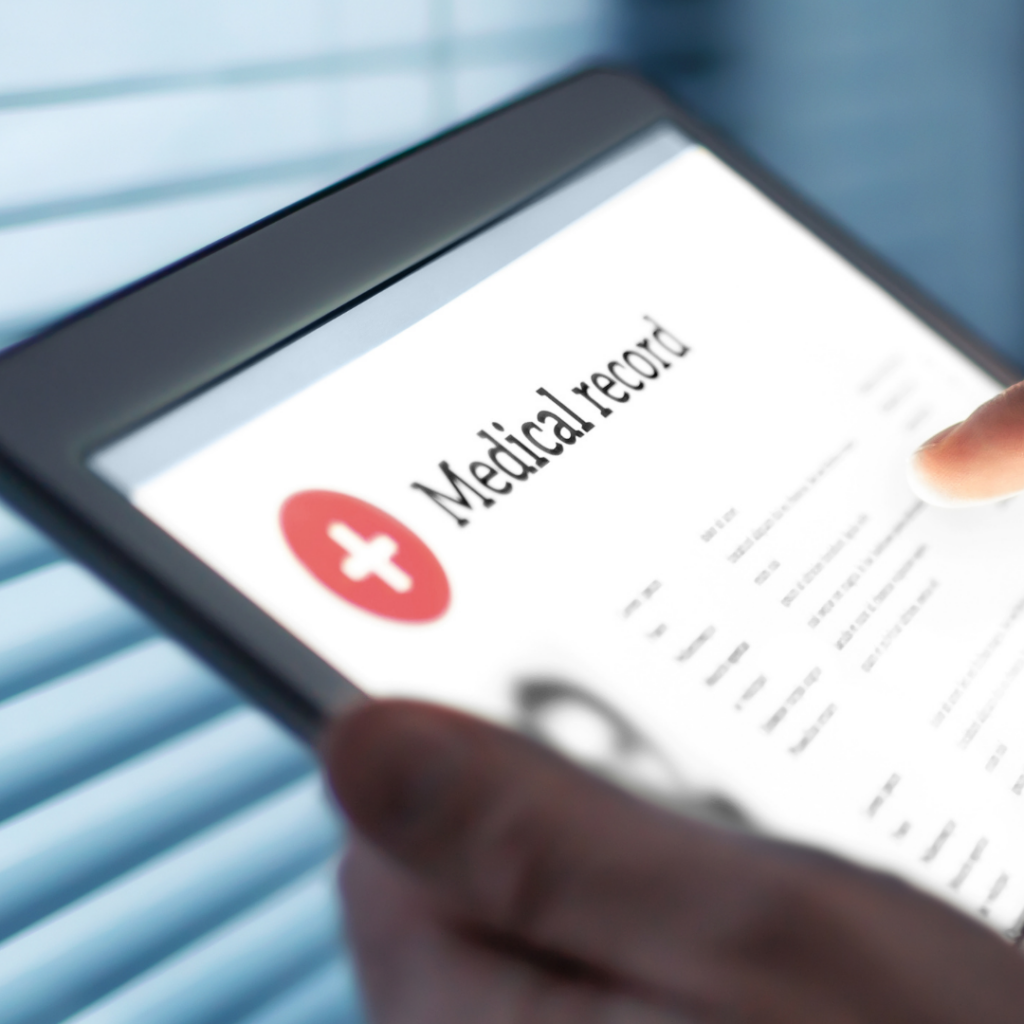When adult children set into motion a plan to move a parent out of their home or living situation, a lot is happening. One of the most common things missed is that families need to have organized medical records before moving. Without medical records, families experience additional costs and time, from spending time on the phone tracking down records to delays in accessing medications and care.

Are doctors the only ones who can request medical records?
No. Individuals and their families have a right to access.
The doctor I saw does not even have a patient portal. They refused to email or fax me records. I could drive to their office or have them mailed to me. Those were my options for accessing the health information I needed yesterday.
Jamie
Adult children usually understand the American healthcare system. However, many have not encountered the disconnect older adults face with multiple providers, medications, and home services. When there are increasing worries about a parent’s safety at home or deteriorating health, collecting and organizing records becomes critical. Health information has become more digitized over an aging parent’s lifetime. Yet, many older adults have not utilized online patient portals. Some providers may not even have an easy way to share health information quickly.
When taking on the collection of medical records, it’s best to understand proxy access and all the ways you or your parent have a right to access health information. The best place to start is with the providers a parent has seen the most in the past three to five years or actively prescribe medications. Yes, a new doctor in a new city or state can request medical records on your parent’s behalf. However, your right to access allows families to prevent delays in care and avoid the time required to track down missing information during an already overwhelming transition.
How are families managing medical records today?
Binders & notebooks are the two most common ways used by families.
Speaking to families who have lived these transitions and supported an aging parent, each spoke to some system of keeping track of doctor visits, hospital stays, and other health information. Some examples:
- Binders, notebooks, file folders
- Sticky notes
- A shared Google calendar or Drive
- Spreadsheets
- Note apps on their mobile phones
They described how difficult it was without this system to keep health information in one place. They found their aging parent’s health information spread out across multiple portals and often handed to them on paper. While organizing helped, many families realized their system was not perfect.
The notes make sense to me, but nobody else can access them. You can lose them, and it’s just not readily available to everyone. It’s all very isolating. I realized I’m responsible, and I feel like I can’t share this responsibility with anyone. If my sisters had to be at the hospital with my parents, they don’t have access to these helpful notes unless I take screenshots and send them.
– Julie
Are binders and notebooks enough?
Many of the families’ Primary Record interviewed were responsible for maintaining their families’ organizing system. All took excellent care of their aging parents. However, when it came to this organizing system, they described the experience as overwhelming. Primary Record learned that the work was not easy and very isolating. The most alarming finding was that family caregivers ranked themselves low when asked how well they keep track of instructions and discharge plans.
How to be better organized to be prepared
The need for a shared space for all family members to organize health information in a standard, secure way became apparent in interviewing families. The vision of Primary Record is that when an adult child begins to worry about an aging parent, they have a place to go. Primary Record is a family’s medical homebase that helps organize health information to share the health stories of their family members and selves more easily. Learn more About us.
Primary Record is focused solely on the needs of families when it comes to organizing and sharing their health information. Having health information collected and easily searchable is only part of the value Primary Record is tackling. To keep updated about what is happening at Primary Record, join our waitlist for early access to your family’s future medical homebase and quarterly updates on what we are learning!





